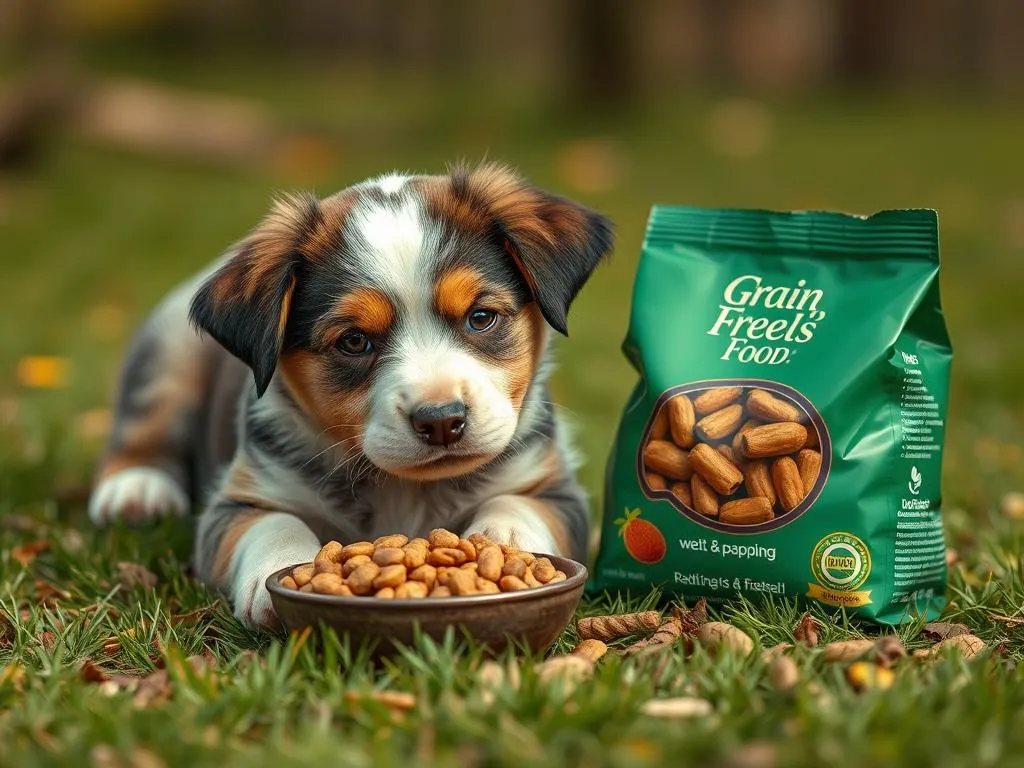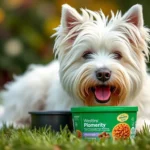
Introduction
When it comes to feeding our furry friends, many dog owners are turning to grain-free diets. But what exactly does that mean? In the context of dog food, a grain-free diet eliminates grains such as wheat, corn, and soy, focusing instead on protein-rich ingredients like meat, fish, and vegetables. This dietary choice often stems from concerns regarding allergies, sensitivities, or simply the desire for a more natural diet.
Nutrition plays a crucial role in puppy development. The right diet not only supports growth and energy levels but also contributes to overall health. Puppies require a balanced intake of proteins, fats, vitamins, and minerals to thrive. In this article, we will explore the best grain-free puppy foods, their benefits, and how to select the right option for your growing pup.
Understanding Puppy Nutrition
Nutritional Needs of Puppies
Puppies have unique nutritional requirements that differ from adult dogs. Essential nutrients include:
- Proteins: Vital for growth, muscle development, and tissue repair.
- Fats: Provide energy and support a healthy coat and skin.
- Carbohydrates: Though puppies can thrive on low-carb diets, carbohydrates can still provide energy when derived from quality sources.
- Vitamins and Minerals: Crucial for immune function, bone development, and overall health.
Balanced nutrition is particularly important for puppies, as they are in a rapid growth phase. The right diet helps establish a solid foundation for lifelong health.
Common Ingredients in Puppy Food
Most commercial puppy foods contain a mix of meat, vegetables, and grains. Common ingredients include:
- Meat and Meat Meals: Primary sources of protein.
- Vegetables: Provide vitamins and minerals.
- Grains: Often included as fillers, providing carbohydrates.
Some owners choose grain-free options due to concerns about grains causing digestive issues or allergies in their pets. This can lead to a growing interest in foods that substitute grains with alternative ingredients.
Benefits of Grain-Free Puppy Foods
Digestive Health
One of the primary advantages of grain-free puppy foods is improved digestive health. Puppies with sensitive stomachs or food allergies may benefit from diets that do not include grains. Signs of food sensitivities can include:
- Vomiting
- Diarrhea
- Itchy skin
- Ear infections
By eliminating grains, many puppies experience a reduction in these symptoms, leading to a happier, healthier pup.
Improved Energy Levels
Grain-free diets often consist of higher protein content, which can contribute to better energy levels in active puppies. A diet rich in quality protein helps sustain energy throughout the day, making it ideal for playful pups who require stamina for their adventures.
Healthier Skin and Coat
The ingredients found in many best grain-free puppy foods can promote healthier skin and a shinier coat. Healthy fats, such as omega-3 and omega-6 fatty acids, derived from sources like fish oil and flaxseed, play a significant role in skin health. These nutrients can help alleviate dry skin and reduce shedding, contributing to a more vibrant appearance.
Choosing the Right Grain-Free Puppy Food
Key Factors to Consider
When selecting a grain-free puppy food, several factors are essential to ensure it meets your puppy’s needs:
- Age and Weight: Puppies grow rapidly and require different nutrient levels based on their age and weight.
- Activity Level and Breed Considerations: Active breeds may require more protein and calories compared to less active ones.
- Known Allergies or Sensitivities: Identify any specific food allergies or sensitivities your puppy may have to tailor their diet accordingly.
Reading Labels Effectively
Understanding dog food labels is crucial in selecting high-quality grain-free puppy foods. Here’s how to break it down:
- Ingredients List: Look for named meat sources (like chicken or lamb) at the top of the list. Avoid foods with vague terms like “meat meal.”
- Guaranteed Analysis: This section provides a breakdown of protein, fat, fiber, and moisture content. Higher protein levels are generally better for growing puppies.
- Additives and Preservatives: Avoid foods with artificial additives and preservatives. Opt for natural ingredients whenever possible.
Top Recommended Grain-Free Puppy Foods
Reviews of Popular Brands
When considering the best grain-free puppy foods, several brands stand out for their quality ingredients and positive reviews from pet owners.
Brand A: Taste of the Wild
- Ingredients: Real roasted meats, fruits, and vegetables; no grains.
- Benefits: High protein content and a balanced blend of omega fatty acids for skin health.
- Drawbacks: Some owners note it may cause digestive upset in sensitive puppies.
Brand B: Blue Buffalo Wilderness
- Ingredients: Real chicken, chicken meal, and a blend of fruits and vegetables.
- Benefits: High protein and grain-free formula designed for active puppies.
- Drawbacks: The price point may be higher than some other brands.
Brand C: Merrick Grain-Free Puppy Recipe
- Ingredients: Deboned meat, sweet potatoes, and peas.
- Benefits: Rich in protein and includes healthy omega fatty acids for coat health.
- Drawbacks: Some puppies may not prefer the taste compared to other brands.
Comparison Chart
Here’s a side-by-side comparison of the nutritional content and price of the recommended brands:
| Brand | Protein (%) | Fat (%) | Price (per 30 lb) |
|---|---|---|---|
| Taste of the Wild | 28 | 15 | $55 |
| Blue Buffalo Wilderness | 30 | 15 | $60 |
| Merrick Grain-Free Puppy | 38 | 15 | $65 |
This chart will help you make an informed decision based on your puppy’s needs and your budget.
Homemade Grain-Free Puppy Food
Benefits of Homemade Diets
For some pet owners, preparing homemade food for their puppies can provide peace of mind regarding ingredient quality. Making grain-free puppy food at home allows you to control the ingredients and avoid potential allergens.
Recipes and Tips
Here are a couple of simple homemade grain-free recipes that pack a nutritional punch:
Chicken and Vegetable Mix
- Ingredients:
- 2 cups cooked chicken (shredded)
- 1 cup carrots (chopped)
- 1 cup green beans (chopped)
- ½ cup peas
-
2 tablespoons olive oil
-
Instructions:
- Cook the chicken thoroughly and shred it.
- Steam or boil the vegetables until tender.
- Mix all ingredients together and allow to cool before serving.
Beef and Sweet Potato Stew
- Ingredients:
- 1 pound ground beef
- 2 cups sweet potatoes (cubed)
- 1 cup carrots (sliced)
- 1 cup spinach
-
2 cups water
-
Instructions:
- In a large pot, brown the ground beef.
- Add sweet potatoes, carrots, and water. Bring to a boil.
- Reduce heat and simmer until the vegetables are tender.
- Stir in spinach until wilted and let cool before serving.
Nutritional Balance Tips: Ensure your homemade meals are balanced by consulting with a veterinarian or pet nutritionist. Puppies require a specific balance of proteins, fats, and vitamins for optimal growth.
Potential Risks and Considerations
Consulting with a Veterinarian
Before transitioning your puppy to a grain-free diet, it’s vital to consult with a veterinarian. They can provide personalized advice based on your puppy’s health, age, and specific needs. This step will help ensure that your choice supports their growth and development.
Risks of Grain-Free Diets
While many puppies thrive on grain-free diets, there are potential risks associated with long-term feeding. Some studies have linked grain-free diets to an increased risk of canine dilated cardiomyopathy (DCM), a serious heart condition. It’s crucial to monitor your puppy’s health and consult with your vet regularly to mitigate any risks.
Conclusion
Choosing the right nutrition for your puppy is an essential aspect of responsible pet ownership. Understanding the best grain-free puppy foods and their benefits can help you make informed decisions tailored to your puppy’s unique needs. Always consider your puppy’s health and consult with professionals before making significant dietary changes. Prioritizing nutritional quality will ensure your furry friend grows into a strong and healthy adult dog.









